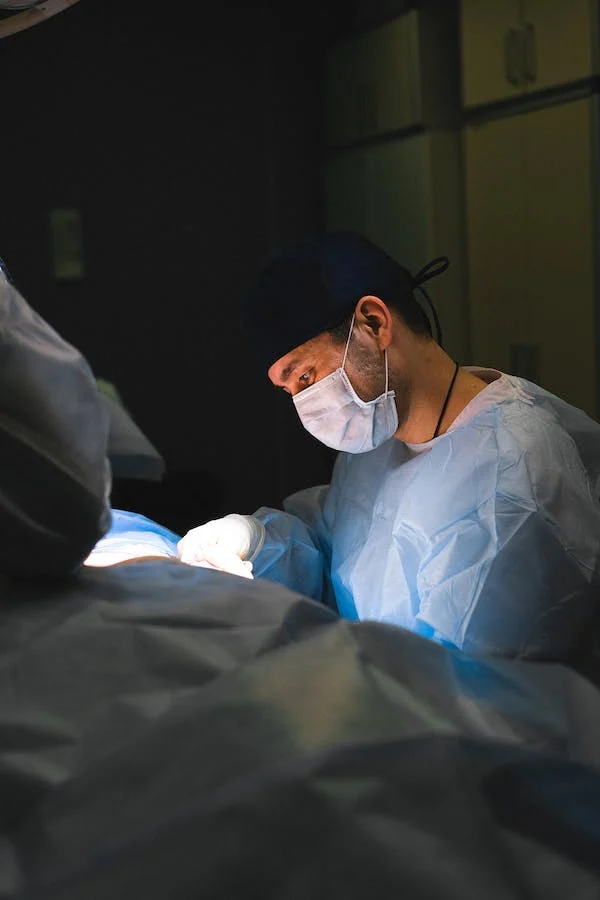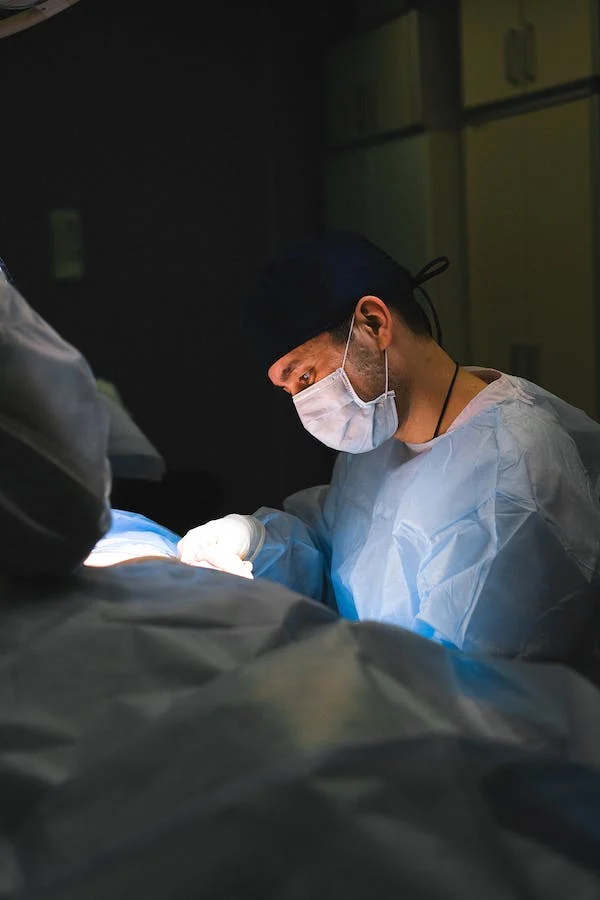lthough circumcision may have some medical advantages it is still a personal decision. Your doctor will be able to help you and your family make the best decision.
Circumcision involves the removal of the foreskin, and the attachment of a plastic penis ring. It is a common procedure and can be done in a hospital.
It reduces the possibility of certain sexually transmitted infection
Certain sexually transmitted infection (STIs) are less likely to be contracted through circumcision, such as gonorrhoea or chlamydia. It makes it easier to maintain your penis clean and reduces the possibility of getting an infection. It reduces the risk for urinary tract infections that are more common in uncircumcised men.
The procedure is simple and is usually performed by a nurse or doctor. The surgeon will remove the foreskin from behind the head of your penis using a scalpel or surgical scissors. You can use heat (cauterization) to stop any bleeding. The skin will be sewed together with dissolving stitch after the surgery.
Numerous studies have shown that circumcision can reduce the risk of STIs. This is because it makes it easier for boys to clean their penises and reduces the chance of getting an infection.
It can also reduce HIV infection. Clinical trials have shown that it can lower the risk of developing HIV in heterosexual contact between female partners. It has also been shown in clinical trials to lower the risk of contracting a number of other STIs like syphilis, genital ulcer diseases, and others.

There’s also evidence to suggest that circumcision can reduce the risk of developing cervical cancer. This is because circumcision reduces the risk of getting infected by HPV, which can cause cervical cancer.
While it’s a widely-accepted practice, there are a few concerns about whether circumcision is appropriate for some people. For example, it may not be suitable for premature babies or for those with blood-clotting disorders. It can also be traumatizing for children, teens, and infants.
Another concern about the procedure is its potential for invasiveness and damage to your bladder lining. This could result in phimosis, which is a painful condition. This can cause pain, swelling of the bladder and a decrease of urine flow.
In addition, some circumcised men resume their sexual activities even before the wound has completely healed. This can increase the risk of STIs. Some circumcised men also have problems with their sexual libido, which can affect the way they interact with their partners. This can make them difficult to find partners and can have a negative affect on their relationships.
It makes it simpler to keep the penis clean
One of the main health benefits of circumcision is that it makes it easier for the penis to be clean, and it lowers the likelihood of certain sexually transmitted infection. There are other benefits too, such as a decrease in the chance of certain cancers or HIV infection.
One way circumcision can help to keep your penis clean is to remove the foreskin. This makes it less susceptible to infection and prevents other problems. If you’re not circumcised, your foreskin can build up with a thick substance called smegma that collects under the skin.
This smegma can be difficult to remove and it can encourage the growth of bacteria, which can lead to infection. It also reduces the risk of getting phimosis or balanitis. Both are more common among uncircumcised men.
Your son can keep his penis clean by showing him how to wash his underside and his head. When he is old enough, show him how to pull the skin back and wash it with soap.
Your doctor or nurse will give you specific instructions for caring for your baby’s penis after he’s been circumcised. You will need to apply a small amount of antibiotic ointment to your baby’s penis for the first few days. It will take around a week for your baby’s penis completely to heal.
You can also help your child’s penis by using a condom while having sex. This will protect your son from sex-related STDs, such as genital herpes.
During the first few days after surgery, your son’s penis might be a little sore or look red or swollen. If these symptoms last several days or seem worse, talk to your doctor.
Although the end of your penis can feel tender at first, it will start to heal within one week. You can also put a little bit of petroleum jelly on the end of your penis to prevent it from rubbing against the front of his diapers.
It reduces the risk of certain cancers
While circumcision does have some health benefits it is still important to practice good genital hygiene, and to avoid sexually transmitted infections (STIs). A man’s risk of getting certain STIs is more influenced by his own sexual practices than whether or not he is circumcised.
Sarcoma is a form penile cancer that affects men who are circumcised. This type of cancer is caused when a wart or ulcer forms on the penis, under the foreskin, and causes bleeding or discharge from urethra.
Sarcomas can cause discomfort and pain as they grow slowly. You should consult your doctor if you suspect that your son may have this condition.
It is also believed that circumcision reduces the risk of high-risk HPV infection. HPV is more common in the glans penis and coronal sulcus of uncircumcised men, but it is rare in circumcised males.
A 2011 study revealed that circumcised men had lower HPV infection rates than those who were not circumcised. The study also showed that HPV is cleared faster in circumcised individuals.
In addition to reducing the chance of HPV infection and circumcision has been linked in some cases with protection against cervical carcinoma. It is also known that circumcision can reduce the risk of HIV infection in women and their female partners.
There is also evidence that circumcision helps to reduce the risk of urinary tract infections (UTIs) in infants. However, this effect is not seen if circumcision is done as an adult.
Besides lowering the risk of sarcoma, circumcision has been shown to protect against HPV infections in males and reduce their risk of cervical cancer. It is believed that HPV is able to get into the underlying epithelial cells of the penis more easily in uncircumcised men.
Circumcision can also reduce the risk of phimosis. This is a narrowed foreskin that can prevent the passage of urine. It is more common in uncircumcised males, and it can cause a serious problem with the urethra.
It reduces the chance of HIV infection
HIV can enter the body through the foreskin, which is an area that is easily infected. Studies have shown that circumcision reduces the risk of getting HIV. Researchers believe this is due to the fact that uncircumcised men are more likely to get HIV from being exposed to vaginal fluids during sexual intercourse.
Circumcision also removes tissue in the foreskin that’s particularly susceptible to the virus and makes it more difficult to germs to thrive in this area. Scientists have also discovered that circumcised men are less susceptible to other sexually transmitted illnesses, including gonorrhea and the genital herpes.
In some countries, like Zimbabwe and Kenya, circumcision is an important part of an overall strategy to reduce the incidence of HIV. It is not an effective method of preventing spread of the disease.
This is because the foreskin is removed, which has a moist, dark area that can be easily scratched by an infected man during sexual activity. It also makes HIV infection more difficult by making it harder to penetrate the Cervix (where most HIV infections occur).
Some men can still get HIV even if they are circumcised. In some countries, like Uganda, around 70% of new HIV cases occur in men who have sex.
Condoms are another way to prevent HIV. However condoms should be used during sexual activity. Many people are unaware of the importance of condoms. In a study in Uganda, the rate of HIV transmission was much lower in circumcised men than in the uncircumcised. circumcision adelaide
Other ways to protect yourself against infection include regular HIV testing, and avoiding unprotected sex. There are several medications that can help prevent HIV infection.
The procedure is done by a doctor or medical worker who numbs the penis with medicine or a numbing cream. The procedure usually takes five minutes for a newborn child, adult, or older person to circumcise.

